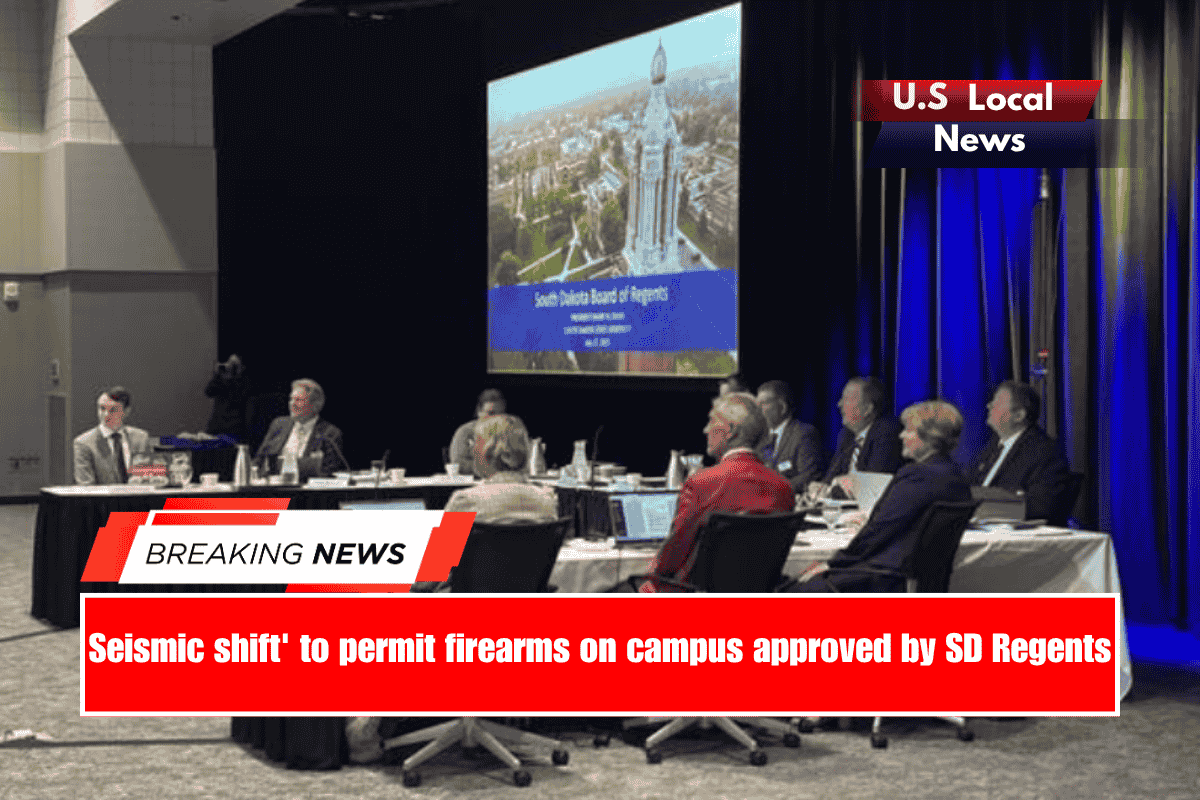Brookings, South Dakota – The South Dakota Board of Regents voted 9-0 on Thursday to amend its policy to comply with a new state law that permits students and others to carry concealed weapons on campus.
The change, which also includes areas where weapons are not permitted, is consistent with regental policy and Senate Bill 100 (SB 100), which took effect on July 1. It was passed during this year’s legislative session and was one of several topics discussed at the meeting held Wednesday and Thursday at South Dakota State University in Brookings.
“First and foremost, we want to make sure that people are safe on our campuses,” said Board of Regents President Tim Rave. “This is a seismic shift from where we had previously been, and I appreciate your dedication to putting together a policy I think that addresses the law the best when we could with what we were handed.”
The law applies to six public universities: Black Hills State University in Spearfish, Dakota State University in Madison, Northern State University in Aberdeen, South Dakota School of Mines and Technology in Rapid City, South Dakota State University in Brookings, and the University of South Dakota in Vermillion.
The law also covers the state’s four technical colleges: Lake Area Technical College in Watertown, Mitchell Technical College in Mitchell, Southeast Technical College in Sioux Falls, and Western Dakota Technical College in Rapid City.
Nick Wendell, executive director of the South Dakota Board of Technical Institutions, stated that rather than having a systemwide policy, the technical school boards will approve their own policies in accordance with the law.
SB 100 was heavily debated in both the House and the Senate before being passed. Opponents cited potential risks to student safety, while supporters cited the Second Amendment and South Dakota’s constitutional carry status as reasons to pass the law.
SB 100 provides some of the most broad access to concealed weapons on campus of any state law on the subject.
Certain areas on campus, as described below, may restrict the use of concealed weapons. It is now up to the schools to decide where those areas are.
Among the specifics adopted
The following are specific guidelines outlined in the law and approved by the Regents:
People 18 and older with an enhanced, restricted enhanced, or reciprocal permit issued in accordance with applicable South Dakota law can now carry concealed pistols on BOR grounds.
Individuals may carry stun guns, mace, or pepper spray on BOR property.
Weapons must be kept in a locked case or safe when not in use or in the person’s possession.
The institutions will not provide cases or safes in the residence halls.
It is the weapon owner’s responsibility to use a suitable storage facility. Failure to do so may result in disciplinary action, including removal from a residence hall or expulsion.
Universities may restrict concealed carry on campus in certain circumstances, as outlined below.
Areas where concealed carry can be restricted
Language in the policy allows schools to restrict concealed carry in certain areas. Here are the locations:
Areas with “significant quantities of hazardous materials” and large cylinders containing corrosive, reactive, flammable, toxic, or oxidizer gases, as well as acetylene gas.
Near magnetic resonance imaging (MRI) or nuclear magnetic resonance equipment.
In a manufacturing or scientific research room, the concentration of airborne particles is controlled to maintain a pollutant-free environment.
In a clearly defined area of a building or structure to which a facility clearance applies or a federal security clearance is required.
During a special event in a building or structure, metal detectors and authorized armed security personnel are stationed at each public entrance to prevent the possession of any dangerous weapons.
Each institution will maintain a registry of all areas where it intends to restrict or limit the carrying of weapons, which will be updated annually.
Jeff Partridge, vice president of the Board of Regents, believes a systemwide, consistent policy is critical.
“Very, very important, as we move forward not to have something going on at this university versus that one, and differing of opinion or interpretation,” according to him. “We’re going to try to continue to avoid that, and it’s going to be a work in progress.”









